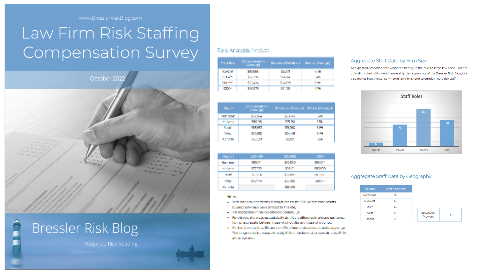Story Updates — Disqualification Denied in Ongoing $6.4b J&J Talc Matter, Law Professor Given Green Light to Argue Against Tesla
Posted on
“Judge refuses to disqualify leading opponents of J&J’s talc bankruptcy plan” —
- “A New Jersey judge on Friday rebuffed Johnson & Johnson’s bid to disqualify the law firm Beasley Allen from representing plaintiffs claiming they got cancer from the company’s talc, a setback for the company as it tries to resolve more than 60,000 such claims for $6.48 billion through a pre-packaged bankruptcy plan.”
- “Judge John Porto of the New Jersey Superior Court ruled that J&J had not presented ‘any credible basis’ for its claims that Beasley Allen partner Andy Birchfield formed an unethical alliance with one of the company’s former lawyers.”
- “Also on Friday, U.S. Magistrate Judge Rukhsanah Singh, who is overseeing talc cases pending in New Jersey federal court, ordered J&J to show cause why she should not adopt Porto’s findings as well as she considers a parallel motion to disqualify the firm from the federal cases.”
- “Erik Haas, J&J’s worldwide vice president of litigation, in a statement said that the company ‘will appeal the trial court’s ruling that it is not an ethical violation for plaintiffs’ counsel to knowingly and surreptitiously collaborate with defendants’ former counsel on the same matter, same claims and same issues that the former counsel represented the defendants.'”
- “In its December motions to disqualify Beasley Allen, J&J claimed that Birchfield acted unethically by working with former Faegre Drinker Biddle & Reath partner James Conlan, who worked on the talc litigation for the company for about two years before leaving legal practice in 2022, to propose an out-of-bankruptcy settlement. The company said Conlan must have disclosed confidential information, but Porto said there was no evidence for that.”
- “J&J has denied plaintiffs’ claims that its talc is tainted with cancer-causing asbestos, saying the product is safe.”
“After controversy, judge in Musk pay case allows Delaware prof to file disputed brief” —
- “It cost him a lucrative law firm consulting gig, but a retired Delaware law professor won the right on Monday to argue against Tesla’s attempt to bypass a court decision invalidating CEO Elon Musk’s $56 billion pay package.”
- “Charles Elson, a longtime corporate governance expert from the University of Delaware, will be allowed to participate as an amicus, Chancellor Kathaleen McCormick of Delaware Chancery Court ruled. The judge is weighing the impact of Tesla’s shareholder vote last month to approve a pay package that the judge invalidated in January.”
- “Tesla, as you may recall, went to unusual lengths to try to block Elson from filing the brief back in May, before its shareholders voted on Musk’s pay.”
- “After Elson’s lawyer sent Tesla a draft of the brief, the company contacted the law firm Holland & Knight, where Elson was a longtime corporate governance consultant. Holland & Knight represents Tesla in at least two major employment cases. Tesla, according to Holland & Knight, alerted the law firm that Elson’s brief created a conflict because its consultant was taking a position contrary to Tesla’s.”
- “Holland & Knight, in turn, sent Elson an email that said Tesla had threatened to fire the firm if Elson filed the amicus brief.”
- “Elson opted to resign from his consulting job at Holland & Knight. He and his lawyer, Joel Fleming of Equity Litigation Group, subsequently told McCormick in court filings that Tesla had tried to “bully” Elson into abandoning the amicus brief by improperly pressuring Holland & Knight.”
- “Holland & Knight told me in May that Tesla did not try to pressure the firm but simply alerted partners about a potential conflict. The firm said its email to Elson describing Tesla’s threat to fire Holland & Knight was ‘incorrect’ and that it independently determined that Elson’s proposed brief ‘would be inconsistent with our obligations to our client.'”
- “Tesla also filed a formal opposition to Elson’s brief in the Chancery Court docket, denying that it leveraged its client relationship with Holland & Knight to squelch the filing.”
- “In Monday’s order, McCormick described Elson as ‘a leading authority on Delaware law’ whose previous amicus brief in the Musk pay case was cited in her January opinion. The judge also refuted Tesla’s argument that Elson’s brief was premature, pointing out that Tesla had already argued in an April 17 letter to the court that the upcoming shareholder vote was likely to impact the case.”
- “McCormick did not address the Holland & Knight controversy, though she brushed aside Tesla’s assertion that Elson had an improper motive for filing the proposed brief in May.”










